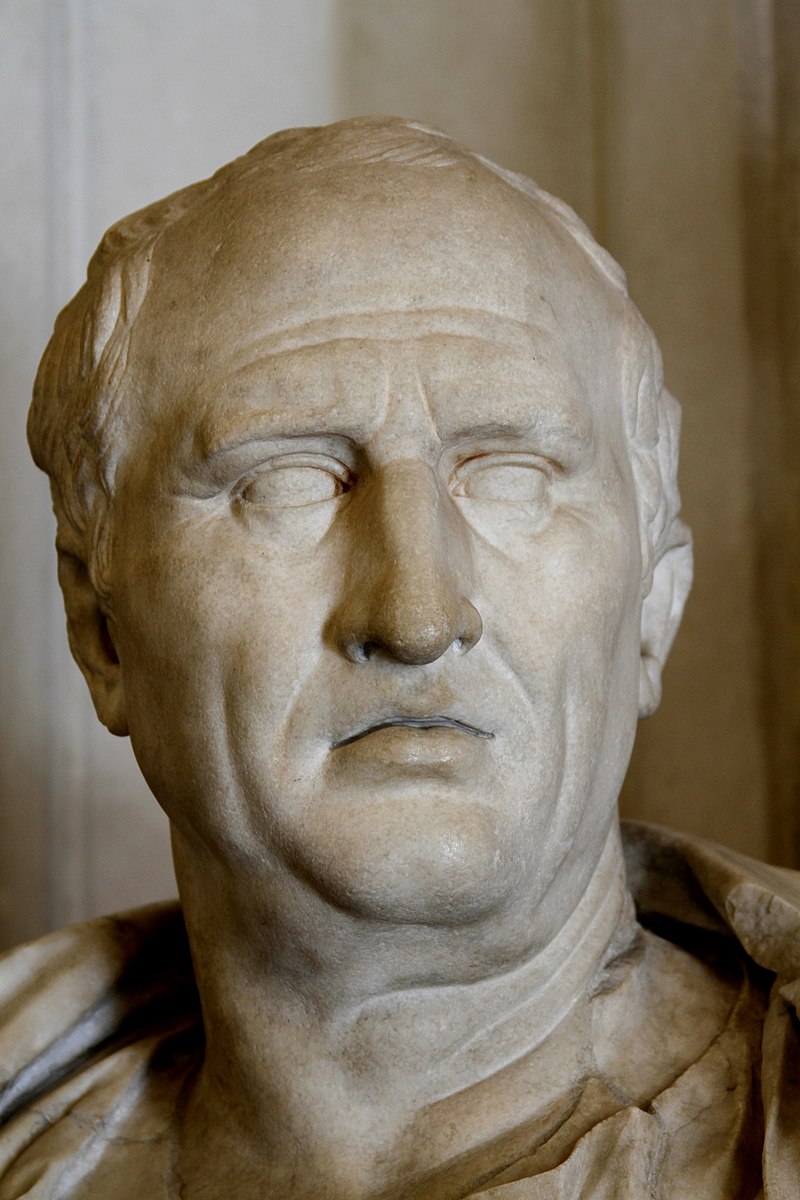| Tamarack Christian Latin |
16 may 2025 |
| Notices |
Last day of tutoring for this term will be Saturday, May 17. |
TCL Scheduling |
|
Discipuli per hebdomadam |
Jacobus R • Secundus P • Secundus A • Ericus • Justinius • Fides • Quintus • Emma • Timotheus |
| Overview
|
Tamarack Christian Latin is the title under which I assist, free-of-charge, those who wish to learn Latin. Over many decades I have helped a wide variety of persons, from young children to senior citizens, with or without previous Latin study, to advance in their understanding and use of Latin. I try to approach Latin as a 'live language', that is, as a language that can be used as would any other even if, admittedly, it needs to be acquired largely by traditional study.
I offer three kinds of Latin learning assistance: • direct tutoring of independent learners; • tutoring/homework help for students in a seated classroom or educational coop; • coaching of participants in Dr. David Noe's Ørberg Latin program (see below).
Independent learners are typically (but not exclusively) home-schooling youth, college students, or adult learners who, with me, decide what program to use to acquire or improve their Latin. Students enrolled in seated classrooms or coops are usually grade-schoolers or high-schoolers looking for assistance with their studies though I do address matters not taught in their courses if I think that would help classroom/coop performance. |
|
General Info |
|
| Information for independent learners and students in classrooms and coops |
The core of my approach is a weekly face-to-face learning session. Direct tutoring sessions usually take place in our home in Saline, MI, and run for 30 or 60 minutes (student/parent choice). Optional homework/review sessions can take place at our home or electronically by Zoom or Facetime. (Students in seated classroom programs can ask for this second session, or not, as their availability suggests.) Time slots for face-to-face and/or electronic sessions are posted here. Optional electronic sessions must be conducted from a place that is quiet, so, no little brothers practicing the banjo while we work on Latin in the same room! Also, electronic sessions with cell phones are often clumsy; I recommend (and might insist) on learners using a laptop or a stable ipad with good image and sound clarity, as I do. |
I never taught anyone Latin but I have helped many people learn it. |
|
|
Parents of youth may observe tutoring sessions, in person or on-line, at any time. Indeed, if tutoring takes place in my home, a parent or guardian must be present during the session, so, no dropping off junior while mom runs to the grocery store. Observers are not students but I am happy to talk with them outside of sessions.
Important note: Latin is incredibly interesting but it requires serious and consistent study. Repeated absences from learning a/o review sessions not only hurts student performance, it disrespects the time I give to this service and deprives others of the chance to use that time. I will discontinue students whose multiple absences or lack of effort render nugatory the opportunity I afford them through TCL. |
|
| Using any mutually agreed upon Latin learning system, independent learners meet face-to-face with me once per week for instruction. (More advanced learners may, but need not, work from a textbook; we adjust follow-up sessions accordingly.)
|
|
Mon 4 |
Prayers. • Nunc dimittis servum tuum, Domine, secundum verbum tuum in pace, quia viderunt oculi mei salutare tuum, quod parasti ante faciem omnium populorum, lumen ad revelationem gentium et gloriam plebis tuæ Israël. Gloria. (31)
Phrases. • Ubi caritas Deus ibi est.
|
|
Mon 5
| Prayer. •
Angelus Domini nuntiavit Mariæ.
Ecce
Ancilla Domini.
Et
Verbum caro factum est.
Ora
pro nobis, Sancta Dei Genetrix.
Oremus. Gratiam tuam quaesumus, Domine, Mentibus nostris infunde; ut qui, angelo nuntiante, Christi Filii tui Incarnationem cognovimus, per passionem eius et crucem, ad resurrectionis gloriam perducamur. Per eundem Christum Dominum nostrum. Amen.
Phrases. •
|
|
Tue 5
|
Prayers. • (a) Pater noster, qui es in cælis: sanctificetur nomen tuum; advéniat regnum tuum; fiat vóluntas tua, sicut in cælo, et in terra. (b) Panem nostrum quotidianum da nobis hódie; et dimitte nobis débita nostra, sicut et nos dimíttimus debitóribus nostris; et ne nos inducas in tentationem; sed líbera nos a malo. (Recording, here.) !
Phrases. •
|
|
Thur 4:30
|
Phrases. •
|
|
Fri 2
|
Prayers. • Dómine Jesu, dimitte nobis débita nostra, salva nos ab igne inferni, perduc in caelum omnes ánimas, praesertim eas, quae misericórdiae tuae máxime indigent. (Recording, here.)
Phrases. •
|
|
Fri 3:30
|
Prayer. • Requiem aeternam dona ei (eis), Dómine, et lux perpétua lúceat ei (eis). Requiescat (requiescant) in pace. Amen.
Learning. • Liber.
Collins 22, Drill 2. • Thema.
• Forma. hic, haec, hoc, • Res Latinae.
Phrases.
• |
|
Fri 4:30
|
Prayer.
Angelus Domini nuntiavit Mariæ.
Ecce
Ancilla Domini.
Et
Verbum caro factum est.
Ora
pro nobis, Sancta Dei Genetrix.
Learning. • Lectio
con •
Lectio selecta.
Kitty cat. :) • Res Latinae.
Phrases.
•
|
| Emma.
Sat 10:30
|
• (a) Pater noster, qui es in cælis: sanctificetur nomen tuum; advéniat regnum tuum; fiat vóluntas tua, sicut in cælo, et in terra. (b) Panem nostrum quotidianum da nobis hódie; et dimitte nobis débita nostra, sicut et nos dimíttimus debitóribus nostris; et ne nos inducas in tentationem; sed líbera nos a malo. (Recording, here.)
Phrases. •
|
|
Progress, here. |
Phrases. • De Maria numquam satis. • Ubi caritas Deus ibi est.
|
|
|
Corner Stone, St. Thomas Church |
Students in seated classroom programs (e.g., St. Thomas Catholic School, Spiritus Sanctus Academy) can bring their textbooks to face-to-face sessions and we will address any issues arising in class. I also discuss issues related to, but not necessarily raised in, their classroom learning. Or, they can study Latin parallel to, but as it were 'independently of', their classroom work; this is a very good approach and we conduct such studies as if they were independent learners, discussed above. The details of either approach are worked out individually. A weekly review session is recommended but not required of these students. |
|
|
Most students in cooperative programs (e.g., St. Joseph Classical Coop) are essentially independent learners so we them as such. Most parents contact me to choose a textbook and a time slot for a weekly face-to-face session. We then use the coop Latin Lab period for the homework/review session. To be clear, SJC Latin is now a homework assistance program (like, say, the SJC math lab); students must be following a course of study on their own (including, if they wish, tutoring with me as above) but I do not run the SJC Latin lab as an instruction program. |
St. Joseph Church |
|
|
Note: For students in seated classrooms and coops, regardless of the program they are following, I can suggest, as circumstances seem to warrant, resources that I think might be of use to them in acquiring Latin. These are, of course, only suggestions. |
| Learners already working with me are invited, as an occasion might present itself, to participate in some extra learning opportunities. Recent examples include:
2024. Athanasian Creed. May 2024. 2023. Saturnalia Nostra. Ritchie's Perseus, here. 2023. Prima H. Hevenesi, Scintillae, here; Ruaeus, here. 2022. Prima H. Christmas. Abelard, Expositio Orationis Dominicae, here. 2022. Fratres Franciscani. Vitae et Constitutiones, texts.
|
| Awards | Learners may obtain special awards for their work. With the exception of Republic Grammar Award, which must be obtained first, awards may be sought in any order. In recitations must be smooth and accurate (not fastidious, of course, but not sloppy or done in fits and starts).
|
|
|
In consultation with its director, I provide 'coaching' for the excellent program "Learn Latin with Dr. David C. Noe". This fee-based course is complete in itself but some participants might find interacting with a 'coach' helpful toward making better use of Ørberg's text, Noe's recorded materials thereon, and their on-line time with him. Dr. Noe's discussions of his "Learn Latin" program are: General announcement, here; Program overview, here; and snippet, here.
Noe’s Latin program starts with a classic text, Ørberg's Lingua Latina, a work respected by teachers and learners for more than 50 years. Noe's recorded presentations on Ørberg are not simply videos of classroom lectures, but rather, are 'reality shows' wherein participants actively engage the text under Noe’s direction which itself is given in Latin and English. Finally, in office hours via Zoom participants can join him and other learners for live interaction, all of which Noe supplements with personal written feedback in the form of homework, quizzes, and tests.
The first Ørberg text, Familia Romana, is the only book required for the four modules of Noe's basic program. Those ordering it directly from Hackett Publishing will be given a discount code. Generally one needs a least a year, and usually more like one-and-a-half to two years, to complete all four modules of the program. The book gets a lot of use so consider a hardback copy. There are follow-up texts for Ørberg (Familia Romana is called "Vol. I" for a reason!), but by the time students are ready for later volumes they will no longer need program overviews from me.
There are many independent endorsements of Ørberg's Lingua Latina out there but those from Luke Ranieri (Fellow, Ancient Language Institute), here, and Dr. Nancy Llewellyn (Belmont Abbey College), here, seem especially insightful.
Noe’s Latin learning program is available to the general public. One need not be enrolled in a seated school or learning cooperative, let alone have access to a coach like me, to use it.
This program, sold in four separate modules, is complete in itself. One can simply sign up, buy the book, and dive in. Most do exactly that. Students join Noe’s program throughout the year so there is a spectrum of learners in terms of (beginner/intermediate) skill levels, ages. |
Ørberg, Lingua Latina, vol I, Familia Romana
Dr. David Noe is a Classicist and ordained in the Orthodox Presbyterian Church. He and his wife home-school their four children. Résumé here. |
| Additional Notes
|
The participants in Noe’s recorded lectures are “adults” but one needs to keep in mind that, when it comes to language studies, basically anyone out of single digit years is considered an “adult”. While maturity levels vary, of course, from the early teens to the early twenties the brain’s basic aptitude for language acquisition seems pretty much the same across those years. And no, no one is 'too old' to start Latin studies (long story omitted).
On its own, Noe’s system is self-paced. Learners may progress at whatever rate they wish. There is no cohort they need keep up with or be slowed down by. Alternatively, schools, learning cooperatives, or parents can adopt this book as their instructional text, have their students watch Noe's recorded discussions of each chapter and access his office hours for extra help if they wish, and then supplement (or not) Noe's program with whatever additional material they might choose (e. g., prayers, paradigm practice, conversational exercises, historical asides).
Note that participants purchase Noe's program directly from him, even if they are enrolled in a school or learning cooperative, and as a result they individually receive the "life-time access" benefit that Noe includes in his program. Directors of schools or learning co-ops can be in touch with Noe about possible group discounts for their members, but the program itself is marketed to individual students. |
LPD is a fine resource from Noe for intermediate-to-advanced Latinists. Free.
|
| Is Latin very different from, say, Spanish or French? English, Spanish, and French are different languages, yes, but they are essentially the same kind of language (explanation of analytic languages omitted). Latin, in contrast, is not just a different language, it is also a different kind of language, one that expresses ideas not just in different words (as do Spanish or French) but in fundamentally different ways (explanation of synthetic languages omitted). As students come to see the linguistic differences between Latin and English they start to realize that there are many ways to express human thoughts and that the wonderful languages we grew up with are not the only ways that ideas can be expressed and people can communicate.
Can I learn Latin on my own? Probably not. In three decades of watching and working with Latin students of every sort, I have yet to meet anyone who, knowing only an "analytic" language such as English or French, actually learned a "synthetic" language like Latin from a textbook. Many have tried, and failed, and walked away--not from their futile methodology, but from Latin itself. That's a pity. Most people can learn Latin if they use a workable approach, but setting off into the wilderness with basically only a textbook as a guide is not a workable approach. Even those who know a Romance language like Spanish, and who thus have a head start in terms of Latin vocabulary, still must learn Latin grammar & syntax, both of which differ markedly from English and Spanish. For that, one almost always needs a tutor or a teacher.
Are there two kinds of Latin? Yes, but the differences between so-called "Church Latin" and "Classical Latin" are usually exaggerated when it comes to grammar, syntax, and vocabulary.
How young is too young to start Latin? Because Latin is, before anything else, a language it is never too early to begin learning it but obviously the techniques used must be suitable to the student's age. I find that younger children are able to learn considerable Latin if it is presented indirectly (e. g., in songs, by games, through prayers) while junior high school aged children, and certainly high-schoolers and beyond, benefit more by direct instruction.
Does memorization play a role in learning Latin today? Unquestionably yes! Notwithstanding the fact that Latin is a language and
so can be acquired by immersion, true immersion environments for Latin are nearly nonexistent now. This lack of Latin immersion opportunities is ameliorated, however, by combining the memorization of Latin vocabulary and forms with such living usage opportunities as do exist. Further discussion of Latin memorization and charts to track one's memorization of key forms and phrases are available here.
|
| If you can understand English you have more than enough brain power to understand Latin. Latin is actually simpler than English and (unlike English) it almost always follows its rules. Americans often complain that Latin is hard to learn but, I assure you, Cicero himself, the greatest Latinist in history, would have found English, the language you use effortlessly, to be a hopeless mess—in part because it is a mess. So, procedamus in pace!
|
| Latin is not the way ancient Romans spoke English, it's the way ancient Romans spoke. Grasp that and one has the essence of the thing. |
staging
| Resources | Learning.
First thoughts, here. Kinds of words, here. Notes on sentences, here.
Nouns – Basics, here. Nouns – Declensions, here.
Pronouns – Basics, here. Pronouns – Personal, here. I°, II°. Pronouns – Personal, here. I°, II°, III°. Pronouns – Relative, here.
Adjectives – Basics, here.
Participles, here.
Verbs – Basics, here. Verbs – Regular, indicative, here. Verbs – esse, indicative, here.
Adverbs – Basics, here.
Prepositions – Basics, here.
Conjunctions – Basics, here.
Interjections – Basics, here.
Vocative case and Imperative mood, here.
Descartes' Maxim.
Roman numerals, here.
Res Romanae, here.
qui, quae, quod, hic, haec, hoc,
ille, illa, illud, is, ea, id, ipse, ipsa, ipsum, [=], sui, (possessives),
iste, ista, istud,
Phrases.
• Pax Christi. • Ubi caritas Deus ibi est. • De Maria numquam satis. • Inítium sapiéntiae timor Dómini. • Repetitio est mater studiorum! • Non tam praeclarum est scire Latine quam turpe nescire.
Other.
• In princípio erat Verbum, et Verbum erat apud Deum, et Deus erat Verbum. • Non nobis, Dómine, sed nómini tuo da glóriam Ps. CXV. • Salve/salvete. Vale/valete. • Quomodo vales? Bene. Male.
• Non nobis, Dómine, here (film), and here (precision). Non nobis, Dómine, sed nómini tuo da glóriam Ps. CXV.
Basic prayers.
• In nómine Patris, et Fílii, et Spíritus Sancti. Amen. (Recording, here.)
• (a) Ave Maria, grátia plena, Dóminus tecum.
• (a) Pater noster, qui es in cælis: sanctificetur nomen tuum; advéniat regnum tuum; fiat vóluntas tua, sicut in cælo, et in terra. (b) Panem nostrum quotidianum da nobis hódie; et dimitte nobis débita nostra, sicut et nos dimíttimus debitóribus nostris; et ne nos inducas in tentationem; sed líbera nos a malo. (Recording, here.)
• Glória Patri, et Fílio, et Spirítui Sancto; sicut erat in princípio, et nunc, et semper,
Other prayers.
• Bénedic, Dómine, nos, et hæc tua dona, quæ de tua largitate sumus sumpturi. Per Christum Dóminum nostrum. Amen. (Recording, here.)
• (a) Credo in Deum, Patrem omnipotentem, Creatorem cæli et terræ. (b) Et in Iesum Christum, Fílium eius únicum, Dóminum nostrum, qui conceptus est de Spíritu Sancto, natus ex Maria Vírgine, passus sub Póntio Pilato, crucifixus, mórtuus, et sepultus, descendit ad ínferos, tértia die resurrexit a mórtuis, ascendit ad cælos, sedet ad déxteram Dei Patris omnipotentis, inde venturus est iudicare vivos et mórtuos. (c) Credo in Spíritum Sanctum, sanctam Ecclésiam cathólicam, sanctorum communionem, remissionem peccatorum, carnis resurrectionem, vitam æternam. Amen. (Recording, here.)
• Dómine Jesu, dimitte nobis débita nostra, salva nos ab igne inferni, perduc in caelum omnes ánimas, praesertim eas, quae misericórdiae tuae máxime indigent. (Recording, here.)
• (a) Salve Regina, mater misericórdiæ: vita, dulcedo, et spes nostra, salve. Ad te clamamus éxsules fílii Hevæ. Ad te suspiramus, gementes et flentes in hac lacrimarum valle. (b) Eia, ergo, advocata nostra, illos tuos misericordes óculos ad nos converte. Et Iesum, benedictum fructum ventris tui, nobis post hoc exsílium ostende. O clemens, O pia, O dulcis Virgo Maria. Amen. (Recording, here.)
• Ora pro nobis, sancta Dei Génetrix. Ut digni efficiamur promissiónibus Christi.
• Deus, cujus Unigénitus per vitam, mortem, et resurrectiónem Suam nobis salutis æternæ præmia comparavit: concede, quæsumus: ut hæc mystéria sacratíssimo beatæ Mariæ Vírginis Rosário recolentes, et imitemur quod cóntinent, et quod promitunt assequamur, per eundem Christum Dóminum nostrum. Amen. (Recording, here.)
• Nunc dimittis servum tuum, Domine, secundum verbum tuum in pace, quia viderunt oculi mei salutare tuum, quod parasti ante faciem omnium populorum, lumen ad revelationem gentium et gloriam plebis tuæ Israël. Gloria. (31)
• (a) Magnificat anima mea Dominum, et exsultavit spiritus meus in Deo salvatore meo, quia respexit humilitatem ancillæ suæ. (b) Ecce enim ex hoc beatam me dicent omnes generationes, quia fecit mihi magna, qui potens est, et sanctum nomen eius, et misericordia eius in progenies et progenies timentibus eum.
• (a) Benedictus Dominus, Deus Israël, quia visitavit et fecit redemptionem plebi suæ, et erexit cornu salutis nobis in domo David pueri sui, (b) sicut locutus est per os sanctorum, qui a sæculo sunt, prophetarum eius, salutem ex inimicis nostris et de manu omnium, qui oderunt nos, ad faciendam misericordiam cum patribus nostris, (c) et memorari testamenti sui sancti, iusiurandum, quod iuravit ad Abraham patrem nostrum, daturum se nobis, ut sine timore, de manu inimicorum liberati, serviamus illi, in sanctitate et iustitia coram ipso omnibus diebus nostris. (d) Et tu, puer, propheta Altissimi vocaberis: præibis enim ante faciem Domini parare vias eius, ad dandam scientiam salutis plebi eius in remissionem peccatorum eorum, per viscera misericordiæ Dei nostri, (e) in quibus visitabit nos oriens ex alto, illuminare his, qui in tenebris et in umbra mortis sedent, ad dirigendos pedes nostros in viam pacis. Gloria. (136)
• (a) O salutaris Hóstia, Quae caeli pandis óstium: Bella premunt hostília, da robur fer auxílium. (b) Uni trinoque Dómino sit sempiterna glória, Qui vitam sine término nobis donet in pátria. Recording here.
• (a) In princípio erat Verbum et Verbum erat apud Deum et Deus erat Verbum. Hoc erat in princípio apud Deum. Ómnia per ipsum facta sunt, et sine ipso factum est nihil, quod factum est. in ipso vita erat, et vita erat lux hóminum. et lux in ténebris lucet, et ténebrae eam non comprehenderunt. (b) Fuit homo missus a Deo, cui nomen erat Iohannes; hic venit in testimónium, ut testimónium perhiberet de lúmine, ut omnes créderent per illum. Non erat ille lux, sed ut testimónium perhiberet de lúmine. (c) Erat lux vera, quae illúminat omnem hóminem, veniens in mundum. In mundo erat, et mundus per ipsum factus est, et mundus eum non cognovit. In própria venit, et sui eum non receperunt. (d) Quotquot autem acceperunt eum, dedit eis potestatem fílios Dei fieri, his, qui credunt in nómine eius, qui non ex sanguínibus neque ex voluntate carnis neque ex voluntate viri, sed ex Deo nati sunt. Et Verbum caro factum est et habitavit in nobis; et vídimus glóriam eius, glóriam quasi Unigéniti a Patre, plenum grátiae et veritatis.
Provisio clause, here.
Accusative supine, here.
Ablative supine, here.
• Attende, Dómine, et miserere, quia peccávimus tibi. (Recording and text, here.)
• Regina cæli, lætare, alleluia, / quia quem meruisti portare, alleluia, / resurrexit sicut dixit, alleluia; / ora pro nobis Deum, alleluia!
• Requiem aeternam dona ei (eis), Dómine, et lux perpétua lúceat ei (eis). Requiescat (requiescant) in pace. Amen.
Five Declensions Four Conjugations Relative Pronouns Personal Pronouns I, II Personal Pronouns III
hic, haec, hoc iste, ista, istud ille, illa, illud ipse, ipsa, ipsum
hic, haec, hoc,
Roman numerals, here.,
Latin & the Indo-European
language family,
| ||||||||||||||||||||||||||||||||||||
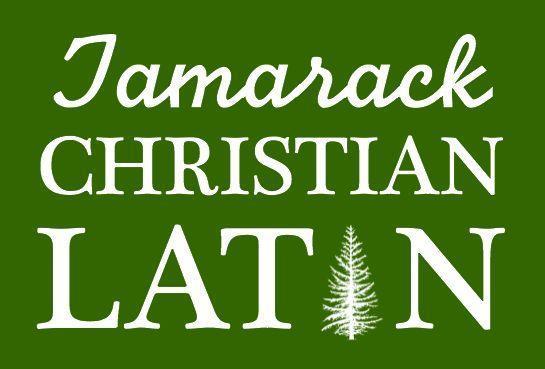

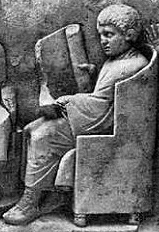






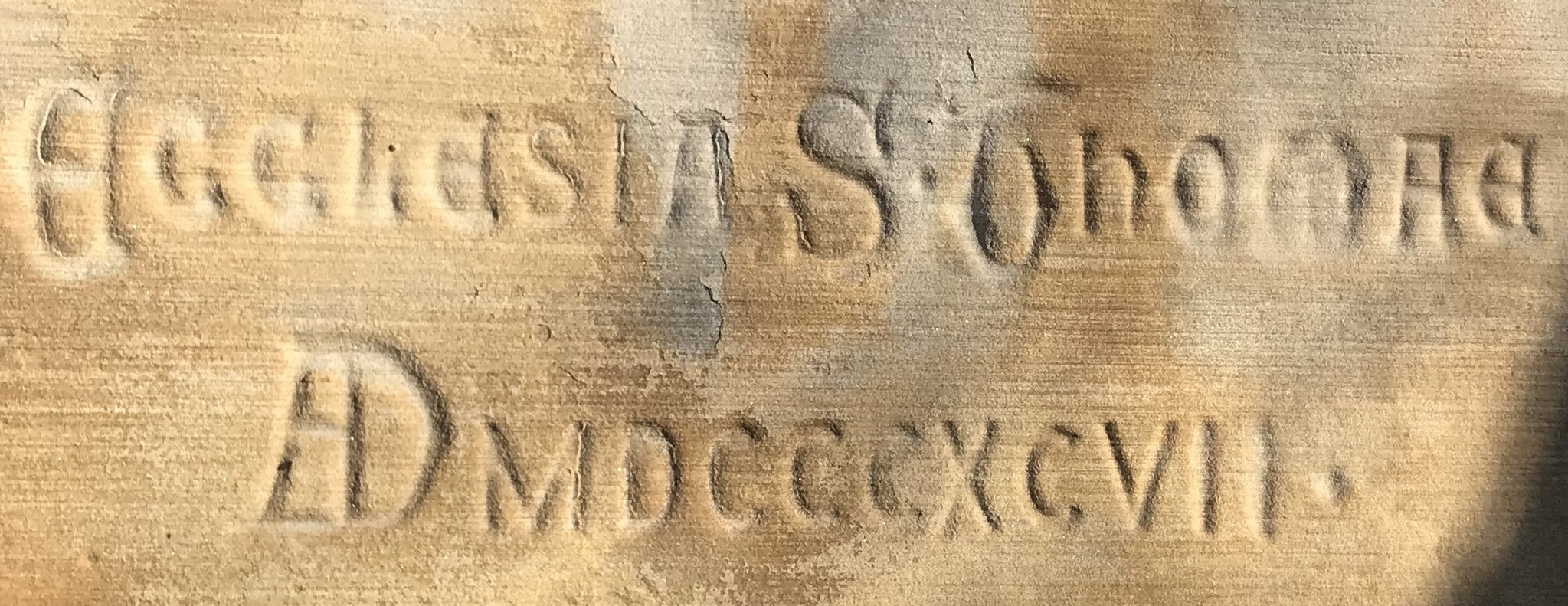





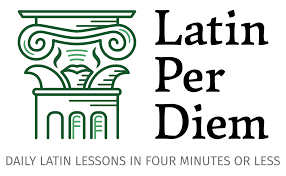
 What differences do exist largely come down to pronunciation and 'accents'. The pronunciation system that I and nearly all Catholic institutions use is "Christian" or "Italianate" or "Ecclesiastical" Latin. That used by Dr. Noe (and nearly all secular educational institutions) is "Classical" or "Restored". Both pronunciation systems have good arguments in their favor and
good Latinists
can move between both. See, e. g.,
What differences do exist largely come down to pronunciation and 'accents'. The pronunciation system that I and nearly all Catholic institutions use is "Christian" or "Italianate" or "Ecclesiastical" Latin. That used by Dr. Noe (and nearly all secular educational institutions) is "Classical" or "Restored". Both pronunciation systems have good arguments in their favor and
good Latinists
can move between both. See, e. g.,  Who is the patron saint of Latinists?
Who is the patron saint of Latinists? 